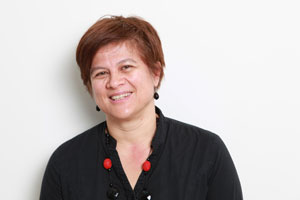
FOR six years up to the year 2000, Ann Lee was beamed into Malaysian households three times a week as an RTM co-anchor for the 8pm news on TV2. She was also a newsreader on RTM’s Radio Four, making her a recognisable face and voice over the Malaysian airwaves. “People sometimes still come up to me to say they recognise me,” she says in surprise.
But Ann is recognised for far more than being a former newscaster. As a playwright, she won the Boh Cameronian Award for Best Original Script for Tarap Man which was performed in Kuala Lumpur in 2007. The full-length play is but one of Ann’s many critically-acclaimed written works for the stage, a collection which will be published in 2011 with the title Sex, Stage and State: Kuali Works plays, 1994+. Kuali Works is the all-women theatre, TV and publications company that Ann co-founded in 1994 to support and foreground original Malaysian work and train women in production technologies.
This former associate creative director with Limkokwing Integrated is or has also been a copywriter, scriptwriter, short story writer, editor and columnist. She has written about the arts and popular culture for more than 25 years.
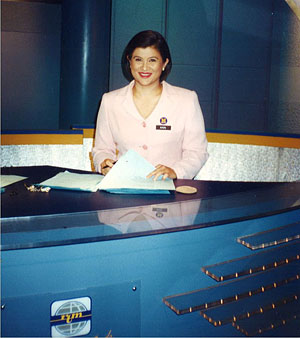
As a theatre director, she has received a Theatre Directors award from the Australian High Commission in Kuala Lumpur. And in 2001, she was selected as an Asia Leadership Fellow and spent three years in Japan, where she also published academically.The last public performance Ann directed was Eve Ensler’s The Vagina Monologues in Kuala Lumpur in 2002. The performance was banned but it was staged nonetheless as a private function and raised RM20,000 for a non-governmental organisation.
She was a trustee of the Asia Pacific Council of AIDS Service Organisations, and has served at PT Foundation as both a board director and chairperson.
Ann now divides her time between Kuala Lumpur and Jakarta. On a trip back home, she speaks to The Nut Graph in a 19 June 2011 midnight interview about growing up in Sabah; the meaning of her name; and her strategies for dealing with people who are surprised she is Malaysian.
TNG: When and where were you born and where did you grow up?
I was born in the General Hospital in Tawau, Sabah in 1965. Within a year or two, my parents moved to Sandakan. So many of my formative years [were] in Sandakan until 1994 when my parents semi-retired to Perth.
My father, Dr Nigel Lever, received a pingat — Ahli Darjah Kinabalu or the Illustrious Order of Kinabalu medal — for setting up the Family Planning Association in Sabah with GN Nickalls. But despite that, he never managed to get his PR (permanent residence).
I remember most of all Sibuga (in Sandakan); that’s where we lived. But I went to a boarding school in Penang from the age of five. I used to fly — like people took buses — from Sandakan to KK (Kota Kinabalu) to either KL (Kuala Lumpur) or Singapore, and then to Penang. The trip would take the whole day.
Whereabouts in Penang was this?
Up on Penang Hill. It was called Uplands International School. It was set up by planters who needed something for their kids.
And how did you end up being sent to boarding school in Penang?
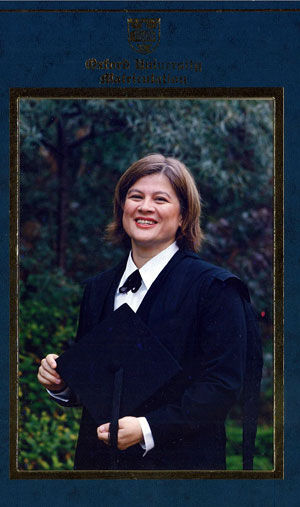
Mum wanted to have us educated down the road. Dad wanted the best education in the world, [and that meant for him] Oxbridge, basically. As far as he was concerned, if we started going to boarding school at the age of 11 or 13 or 15, it would just be very traumatic. So, why not just go at five? [Laughs]
And I suppose at that time, at least from my father’s perspective, he didn’t feel that [Sandakan provided] the best world-class opportunities. Whereas my mum, who was educated in Sandakan thank-you-very-much and then went to Singapore – she was a nurse, by the way – and then Sydney and Melbourne for some of her nursing training, was like “What’s wrong with local education?”
So, they had this big fight. And Dad won. So, both my brother and I went to boarding school from the age of five…and eventually we both graduated from Oxford!
Tell me a bit about your ancestry both on your mum and dad’s side.
Mum is Hakka. Mum is basically third-generation Malaysian. Family came through Kudat from, like all Hakka, Guangzhou in the south of China. They came with the Basel Christian Mission. They were not missionaries but they were already Christian by the time they arrived. But Christian mixed with all kinds of traditional Chinese stuff.
My maternal grandfather — whom we only referred to as kung kung — his father was Kapitan China in Kudat, a VIP of some sort. My kung kung had enough support and schooling to go to Shanghai and did English classes and came back being the only person who could speak English. And so he starts to do interpretation and translation work for banks and things like that. So, he also becomes somebody. Thomas Chan Tain Onn was his name. He was killed by the Japanese in World War II and thrown into a mass grave with 10 others. Mum’s side are all Chan.
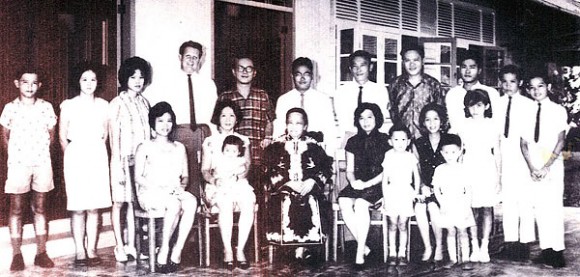
And Mum has all these stories about how her grandmother, Woo Hock Lian, was this fierce, incredible entrepreneur…like the typical Hakka [who are] really enterprising, hardworking and all of that. My maternal great-grandmother was famous for riding a pony, could crack the whip with all kinds of workers, and owned land.
So, where was your mum born?
Mum was born in Kudat and she is one of nine.
And your dad’s side?
Dad is the only child. So, there was always such a marked difference [during] family occasions.
Dad’s family is from Lancashire. They were working class. Dad’s maternal grandfather, that is my great-grandfather, was a factory worker with Lever Brother’s Sunlight soap factory. His name was “Lever” but he was not the owner Lever, he was the worker Lever [chuckles]. Lever is a very common name in Manchester and Lancashire.
There is this other story about how my paternal great-grandfather, as a young boy, lost two fingers in the machinery while working in the mill. And he had to be back at work within two hours or something like that. Later at school when I learnt about the Industrial Revolution, I always remembered this story about great-grandfather Lever who lost his fingers and had to go straight back [because there was no union].
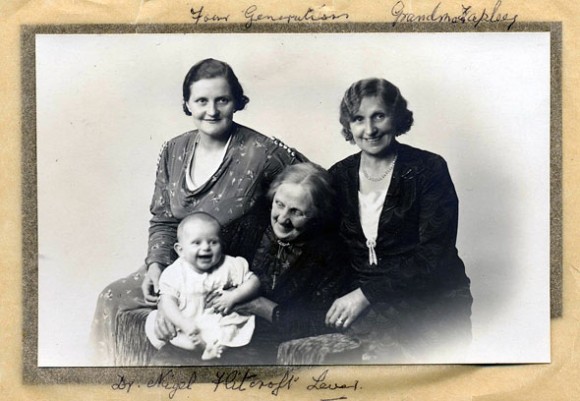
[They definitely had] a sense of family as well. And enterprise, too, because they went on to own a corner shop. My grandmother had to leave school at 15 to work in the corner shop. My great-grandfather didn’t believe in education for girls.
But she was a great swimmer [and she was meant to swim at the Olympics]. Unfortunately, and this is part of the family mythology, she had a slight asthma attack and the coach used that as an excuse to disqualify my grandmother and put his daughter, who was next in line, in place.
Grandpa was a police officer and he went to law school by night and completed his law degree. He rose through the ranks and became Head of Prisons in Mauritius, and that was obviously an amazing time for my grandparents because they lived in this colonial world lah. They were from the working class and suddenly they were in charge and people looked up to them.
How did your parents meet?
They met in Tawau. It was still British North Borneo in the 1950s. My dad came over during the Emergency. He was doing his national service.
He was a medical captain in the army. He was based in Kota Belud in Sabah.
After they got married, Dad set up his private practice in Sandakan, and Mum worked with him in the clinic.
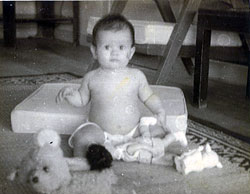
But your parents have both since settled in Perth?
Right. Dad is now an Australian citizen. Mum has retained her Malaysian citizenship. They now spend time in Malaysia and in Perth.
Tell me about your name, “Ann Lee” and how you chose “Lee” to be your pen name?
It was a little debate with myself and I made this personal choice at 17. The simple fact of taking on another name is classic feminism. So I thought, “Ya, why do I need to have my father’s name? If I could pick my own name, what would it be?” And I picked “Lee” because it can be both English and Chinese. Obviously, in the Malaysian context, everybody thinks it’s Chinese.
So you would be fourth generation Malaysian on your mother’s side?
Ya. On my father’s side, I would be second-generation colonialist [laughs].
[Laughs]
[…]
Ya, but there were times when I wished I wasn’t “white”. Wished that I wasn’t half-Chinese.
When especially would you feel this way?
When I was at school in the UK and bullied. It was a fact that I sounded very different; I spoke English in a very different way. I had to actually take elocution lessons as my father suggested it might help me fit in better.
Wishing I wasn’t half-English is something that happened later when I was older; when I noticed at least two things. One, that people would think, “Oh, you think you’re such a big shot”, and want to cut you down to size.
And the converse of that, which is that people treat you better because you look white. It makes my hair stand on end when that happens.
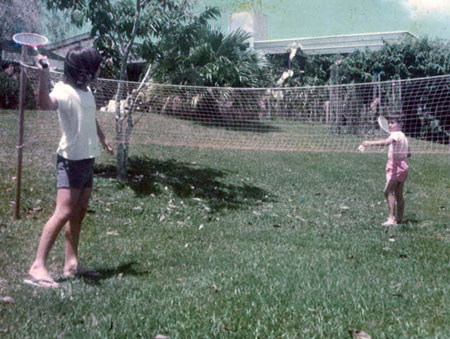
What aspects of your identity do you struggle with the most as a Malaysian, if any?
Well, certainly, it’s tedious for me that people should be surprised that I am Malaysian. I’ve had this since I was born. Even when my mother took me to the market [as a child], they would ask her in Hakka, “So, how long have you been looking after her?”
Just the other day, I got on the plane from Jakarta to KL and this guy [seated next to me] turns and says, “So, where are you from?” “I’m from Malaysia. You?” “Oh, I’m from Malaysia. Huh? What did you say? You’re not Malaysian. You can’t be Malaysian.” So, I said to him, “You’re not Malaysian. You can’t be Malaysian.”
And he said, “You look like you’re from Europe.” And I said, “You look like you’re from Papua.”
But hey, it’s not a big problem. But it does mean that I have this long-standing thing whereby communication-wise, Malaysians understand me better when I speak in English compared to in Malay. Because the English matches the face. The Bahasa does not match the face. The Hakka does not match the face. Our mindsets can be so fixed.
Describe the kind of Malaysia you would like for yourself and future generations.
Oh my God. It’s very easy to criticise, much harder to create, kan? [chuckles]
Would I want it any different from what’s happening now? I don’t think so. Because it seems to me that everything that is happening now is part of people’s agency.
But definitely, if the purpose of the constitution is that it would ensure the rule of law, then I would like better conviction that there is such a thing as an independent judiciary. ![]()


Andrew I says
They had both notable and un-notable newsreaders at the time. Fortunately, Anne was one of the more notable ones, in my opinion anyway.
I remember when she was reading the news covering Anwar’s trial in 1998. It’s funny how this interview ended. A similar thought crossed my mind at the time, too.